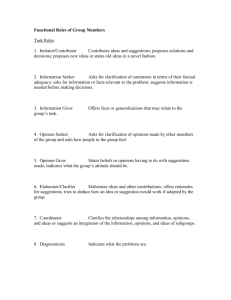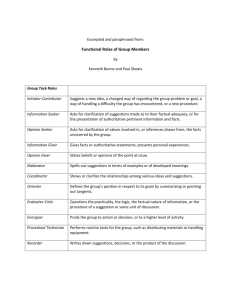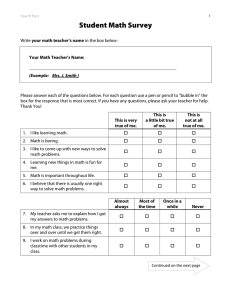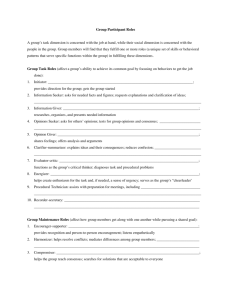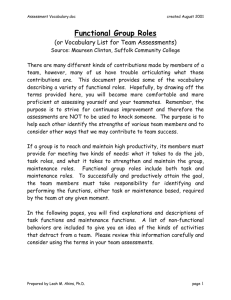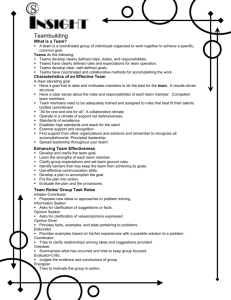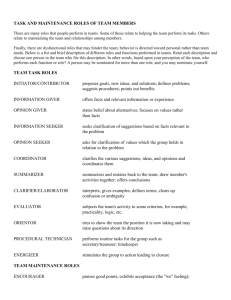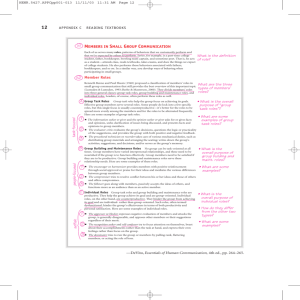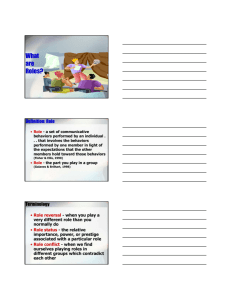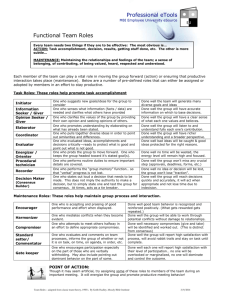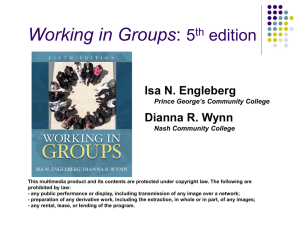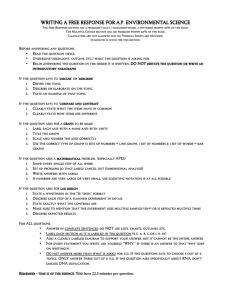Functional Roles of Group Members
advertisement
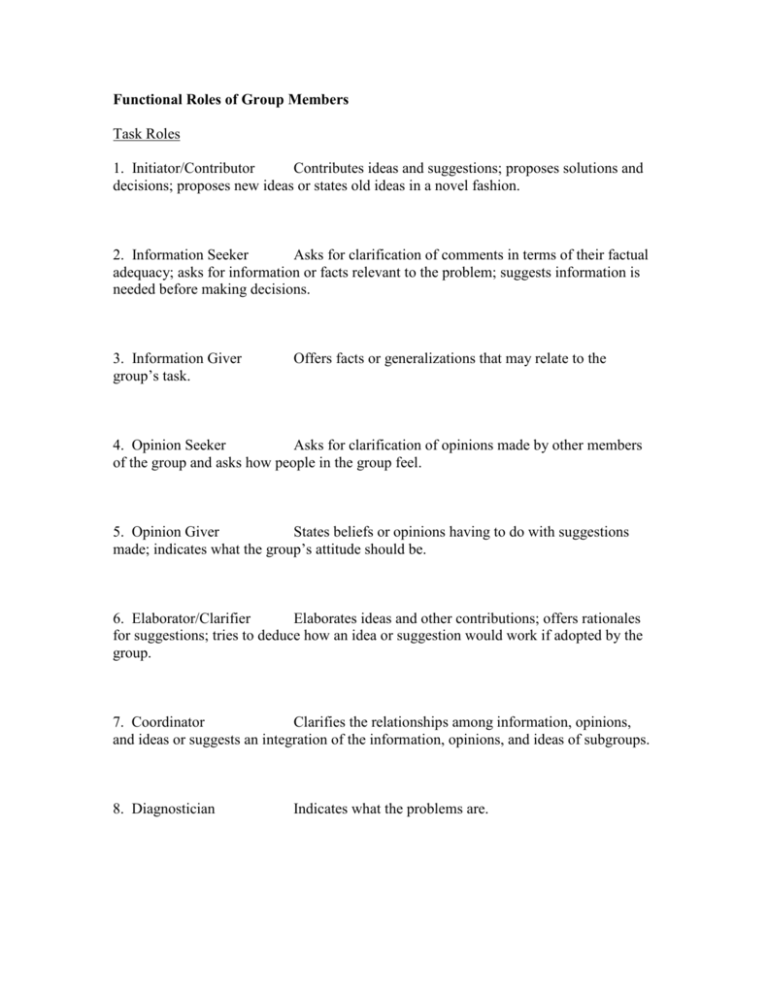
Functional Roles of Group Members Task Roles 1. Initiator/Contributor Contributes ideas and suggestions; proposes solutions and decisions; proposes new ideas or states old ideas in a novel fashion. 2. Information Seeker Asks for clarification of comments in terms of their factual adequacy; asks for information or facts relevant to the problem; suggests information is needed before making decisions. 3. Information Giver group’s task. Offers facts or generalizations that may relate to the 4. Opinion Seeker Asks for clarification of opinions made by other members of the group and asks how people in the group feel. 5. Opinion Giver States beliefs or opinions having to do with suggestions made; indicates what the group’s attitude should be. 6. Elaborator/Clarifier Elaborates ideas and other contributions; offers rationales for suggestions; tries to deduce how an idea or suggestion would work if adopted by the group. 7. Coordinator Clarifies the relationships among information, opinions, and ideas or suggests an integration of the information, opinions, and ideas of subgroups. 8. Diagnostician Indicates what the problems are. 9. Orienter/Summarizer Summarizes what has taken place; points out departures from agreed-on goals; tries to bring the group back to the central issues; raises questions about the direction in which the group is heading. 10. Energizer Prods the group to action. 11. Procedure Developer Handles routine tasks such as seating arrangements, obtaining equipment, and handing out pertinent papers. 12. Secretary Keeps notes on the group’s progress. 13. Evaluator/Critic Constructively analyzes the group’s accomplishments according to some set of standards; checks to see that consensus has been reached. Social/Maintenance Roles 1. Supporter/Encourager Praises, agrees with, and accepts the contributions of others; offers warmth, solidarity, and recognition. 2. Harmonizer Reconciles disagreements; mediates differences; reduces tensions by giving group members a chance to explore their differences. 3. Tension Reliever Jokes or in some other way reduces the formality of the situation; relaxes the group members. 4. Conciliator Offers new options when his or her own ideas are involved in a conflict; disciplines to admit errors so as to maintain group cohesion. 5. Gatekeeper Keeps communication channels open; encourages and facilitates interaction from those members who are usually silent. 6. Feeling Expresser Makes explicit the feelings, moods, and relationships in the group; shares own feelings with others. 7. Follower Goes along with the movement of the group passively, accepting the ideas of others sometimes serving as an audience. Dysfunctional Roles 1. Blocker Interferes with progress by rejecting ideas or taking a negative stand on any and all issues; refuses to cooperate. 2. Aggressor criticizes. Struggles for status by deflating the status of others; boasts; 3. Deserter Withdraws in some way; remains indifferent, aloof, and sometimes formal; daydreams; wanders from the subject; engages in irrelevant side conversations. 4. Dominator Interrupts and embarks on long monologues; is authoritative; tries to monopolize the group’s time. 5. Recognition Seeker Attempts to gain attention in an exaggerated manner; usually boasts about past accomplishments; relates irrelevant personal experiences, usually in an attempt to gain sympathy. 6. Playboy Displays a lack of involvement in the group through inappropriate humor, horseplay, or cynicism.
